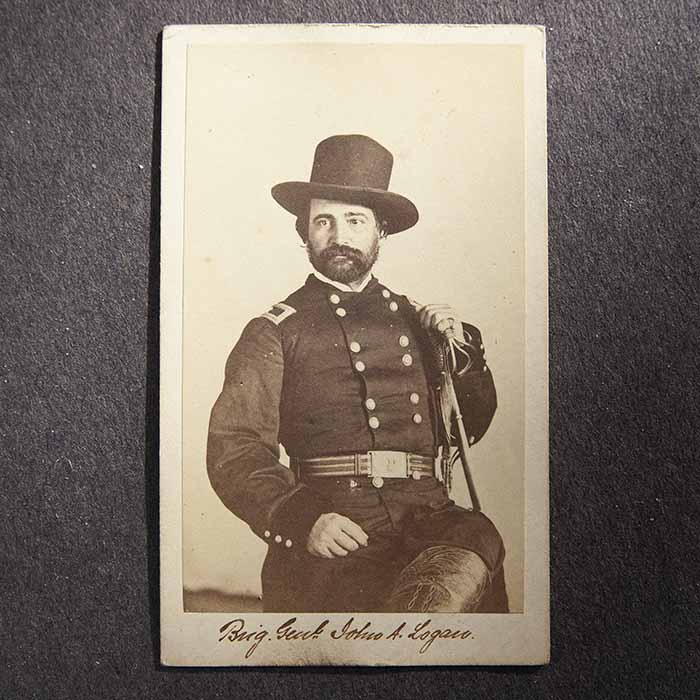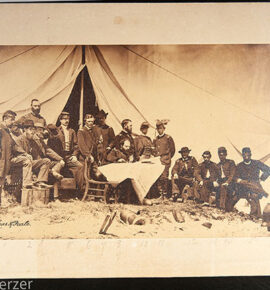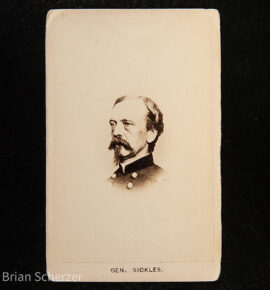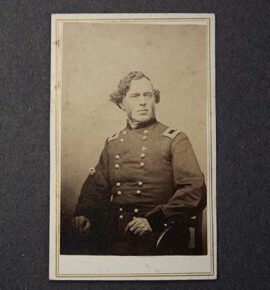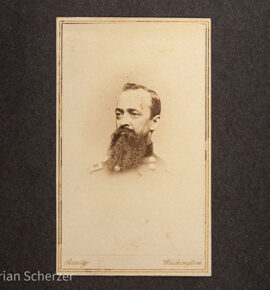Description
No backmark. Logan was elected to the United States House of Representatives as a Democrat in 1858 and retained his seat in the election of 1860. His political views were in line with his southern Illinois roots. He was anti-abolition, and an ardent supporter of fugitive slave laws. However, where the issue of secession was concerned, Logan could not see eye-to-eye with his fellow Democrats from the South; the Union must be preserved. Logan followed his convictions—and the U.S. Army—into the First Battle of Bull Run, where he was a volunteer with the 2nd Michigan. Afterward, he returned to his home state to raise the 31st Illinois, becoming its colonel. He led the regiment at the Battle of Belmont, Fort Henry, and Fort Donelson where he received a grave wound. While recuperating, the former congressman was promoted to brigadier general and returned to the front as a brigade commander in the Seventeenth Corps of the Army of the Tennessee.
Unlike many other politician-generals, "Black Jack" Logan excelled in the military. By March of 1863, Logan was a major general commanding a division. He continued to lead with distinction during the campaign to capture Vicksburg, most notably in the assault following the explosion of a mine. After Vicksburg, Logan was given command of the Fifteenth Corps on October 27, 1863 and continued to earn recognition for his leadership during the Atlanta campaign the following spring and summer. When his immediate superior, Maj. Gen. James B. McPherson was killed in the Battle of Atlanta, Logan temporarily commanded the Army of the Tennessee but was subsequently replaced by West Point graduate Maj. Gen. Oliver O. Howard, presumably because William T. Sherman was skeptical of politicians in uniform. Logan put on his politician hat in the fall of 1864, returning to his home state to campaign for Abraham Lincoln--a marked contrast for the erstwhile Democrat. In December, the major general returned to the field at the head of the Fifteenth Corps until the cessation of hostilities. He was given command of the Army of the Tennessee on May 23, 1865--just in time to lead it in the Grand Review in Washington, DC.

